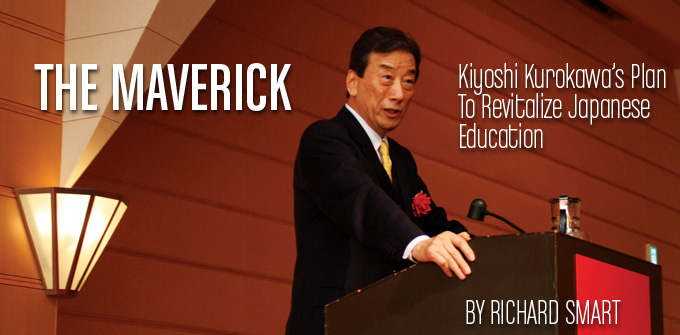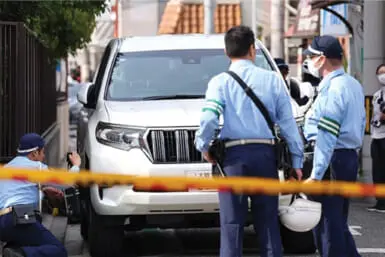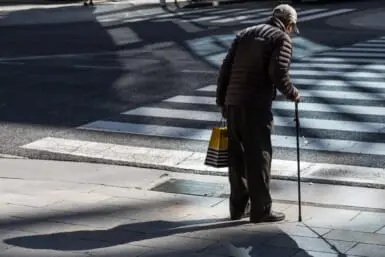Considered a wild card at home, Kiyoshi Kurokawa was recognized as the Person of the Year from the American Chamber of Commerce this February, and all for a simple idea that he has plugged away at for decades: Add worldliness to Japanese education.
by Richard Smart
‘For salarymen, it’s too late,” Kiyoshi Kurokawa says in an interview last week. “That’s why I am talking to university students.”
Kurokawa’s view of Japanese society, and his solution to its ills, may seem to foreigners rather simple, as he would be the first to admit. Basically, Japan is made up of rigid hierarchies that permeate through society. The position one will take on the social ladders within these hierarchies is decided from university age, if not before. Climbing up the ladder is a matter of course, and any innovation or deviation from the predominant attitudes within this hierarchical system is snuffed out quickly.
His solution to this problem? Get people outside of Japanese society, and let them enjoy the fruits of a less rigid social system.
“Just try to go out and see the world, and you will also see yourself. And when you come back, you can appreciate the good points and bad points of Japan, you can see the whole of the country much more clearly,” Kurokawa says of his advice to Japanese students.
He is speaking from experience: Having spent 15 years in the United States in the medical field, Kurokawa’s manner is not that of your typical older Japanese man. He speaks passionately and in a much less guarded manner than many of his countrymen do in front of journalists. When emphasizing statements, he points and varies both his tone of voice and volume. Never mind that some Japanese might get upset with the professor, it’s almost difficult for a long-term foreign resident to get used to.
An advisor to governments, a thinker on medical policy, a teacher, a doctor and a mentor for students seeking medical degrees, Kurokawa’s idea is not particularly radical. And the difficulty Japan has had accepting it says much about the nation’s conservatism.
“(When I worked) at Tokyo University, in a way I was surrounded by enemies,” Kurokawa tells me. “I’m very outspoken, and so the Japanese establishment hates me. I’ve had some negative experiences through that, so that’s why I’m always speaking to the younger generation. They are the ones that matter for our future and can change their lives.”
Despite the complaints Kurokawa has received over the years, he has plugged on, and also enjoyed influence, particularly in his role as an advisor to the Japanese government.
Speaking of the advice he gave the Cabinet, Kurokawa says that “many bureaucrats understand what I am saying and agree with it because they know I am right. But they cannot implement the ideas because of the social situation. If they rock the boat then they may be overlooked the next time there is a chance for promotion.”
This perception of stagnation, however, doesn’t really fit with Japan’s recent history. In 2008, the Democratic Party of Japan was swept in to power with its promise of seiken koutai (political change), and many analysts even saw the victory of Junichiro Koizumi in a 2005 election as a demand from the people for a more radical approach to governance. Given this, can we really talk about a Japan that is not dynamic?
“When a political party takes power it takes time for it to learn how to implement policy. The DPJ doesn’t have the experience to bring about true democracy,” Kurokawa replies. “Japan cannot change. This system has been built into the Japanese mindset for hundreds of years, since Europeans were shut out at the beginning of the Edo Period.”
Eliminating this mindset may take time, but it will eventually happen, according to the doctor. As a part of the process, universities are also going to have to get in on the act, and more foreigners will need to enroll in Japanese schools. “Tokyo University is just saying it is trying to internationalize,” Kurokawa says, pointing to a fear of a future where Japan’s top academics are all foreigners.
“When Junichiro Koizumi was in power, I spoke of the ‘Sumonization’ of university. You know sumo? Seven percent of all sumo wrestlers are not Japanese,” he tells me. “When you get to the makuuchi level, more than 30 percent are not Japanese, go to sanyaku, the ozeki rank, and 50 percent are non Japanese. And there are no Japanese yokozuna (the highest rank in sumo). What’s wrong with that? Why can’t universities play a similar role?
“This is about our nation’s future security. More international friends can only be a good thing. The same concept works for the corporate world.”
He contrasts this situation with what happened in the mid-1990s: “In the Bubble Era, a lot of Japanese people would go overseas for a couple of years to, say, study MBAs through companies such as Mitsubishi — even government bureaucrats went on taxpayer’s money — and what happened when they came back? They are in the same position, they never jumped ahead of their peers. So why did they do the MBA in the first place? To show off?”
Kurokawa’s desire is to see a Japan in which leading scholarly posts and corporate positions are put in the hands of the most skilled candidates, even if they are foreigners. A meritocracy, if you will. This may leave a bad taste in the mouths of some here — those moving through the hierarchy — but it may already be coming. Carlos Ghosn, the head of Nissan, is a leading example. Kurokawa also points to Masayoshi Son. “People like Masayoshi Son think outside the box. Son knew he wouldn’t be accepted into the system because he is a second-generation Korean, so he left high school and made his way on his own, he knew he had to,” he says.
Looking to these people, and to a system that has many hurdles to studying abroad — with some private universities continuing to charge tuition fees even if students are studying abroad — one cannot help but think Kurokawa has a compelling point, and that his determination will make sure it is heard.
“Japanese are finally beginning to recognize the importance internationalization now. It’s too slow. I’ve been saying this for 25 years.”
Kiyoshi Kurokawa MD, MACP. FRCP (London) is Professor, at the National Graduate Institute for Policy Studies Chairman, Health and Global Policy Institute Professor, Emeritus of the University of Tokyo
More Info: www.kiyoshikurokawa.com










